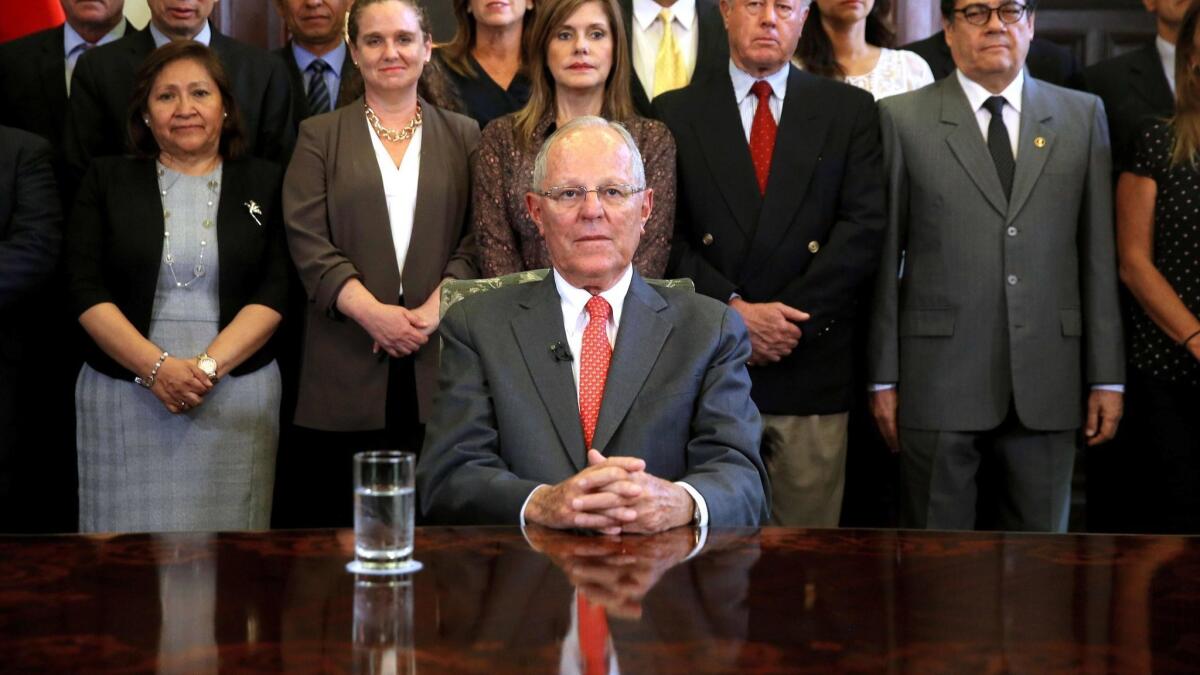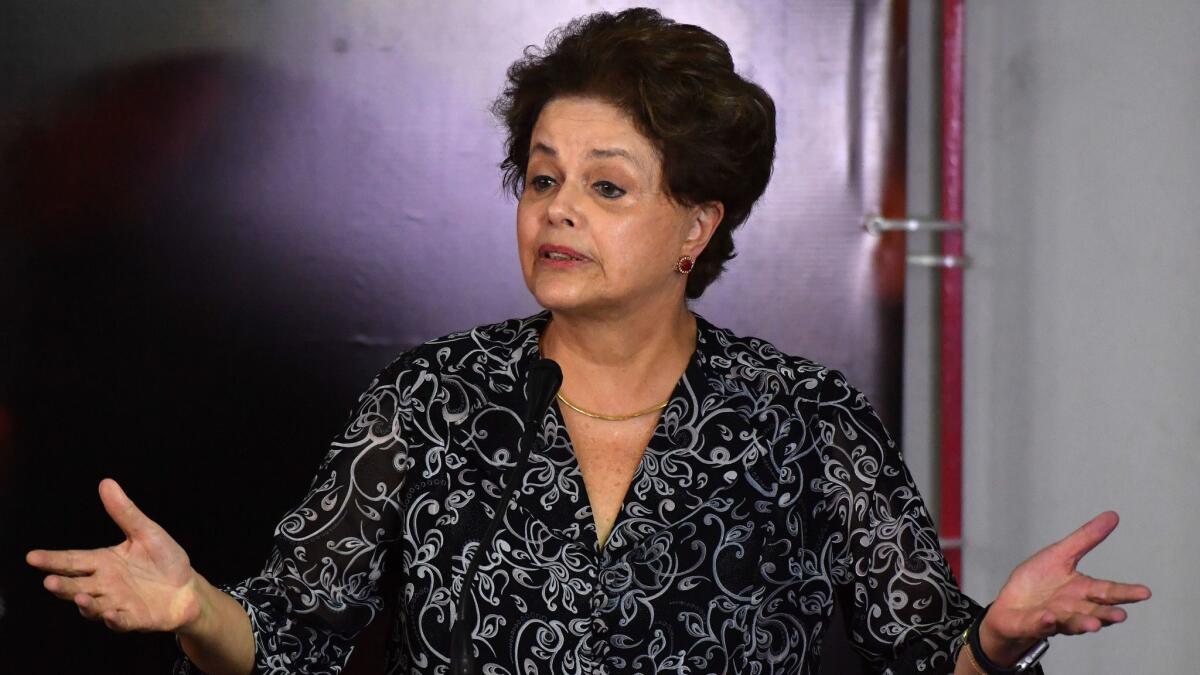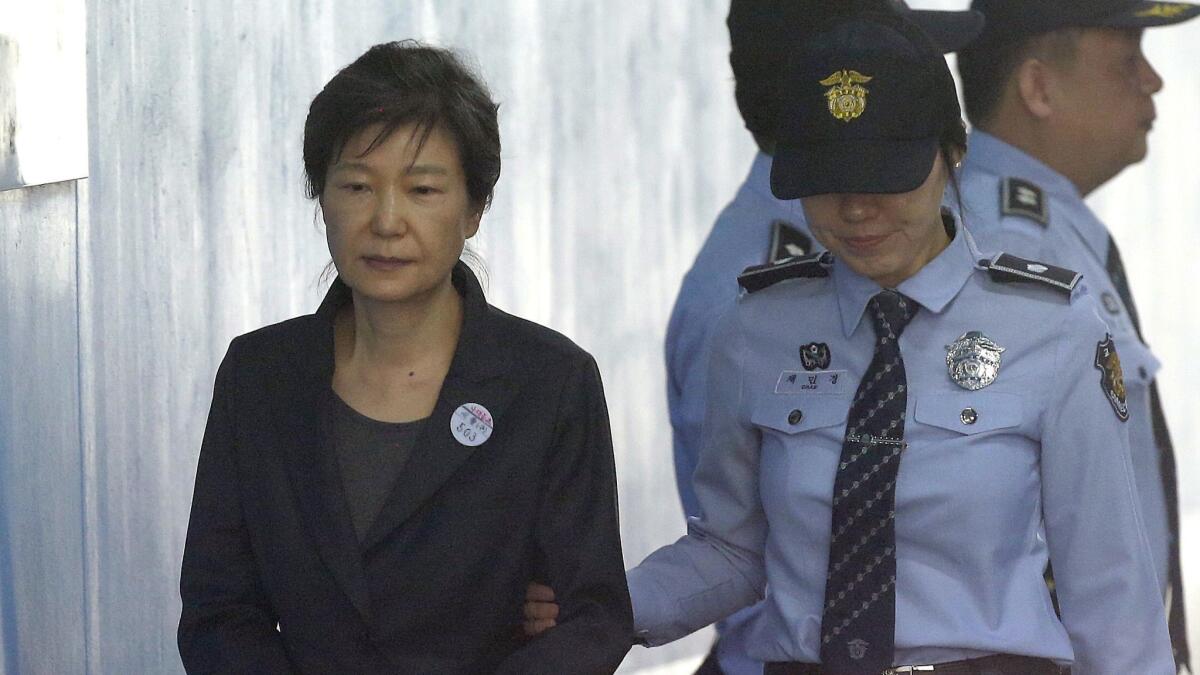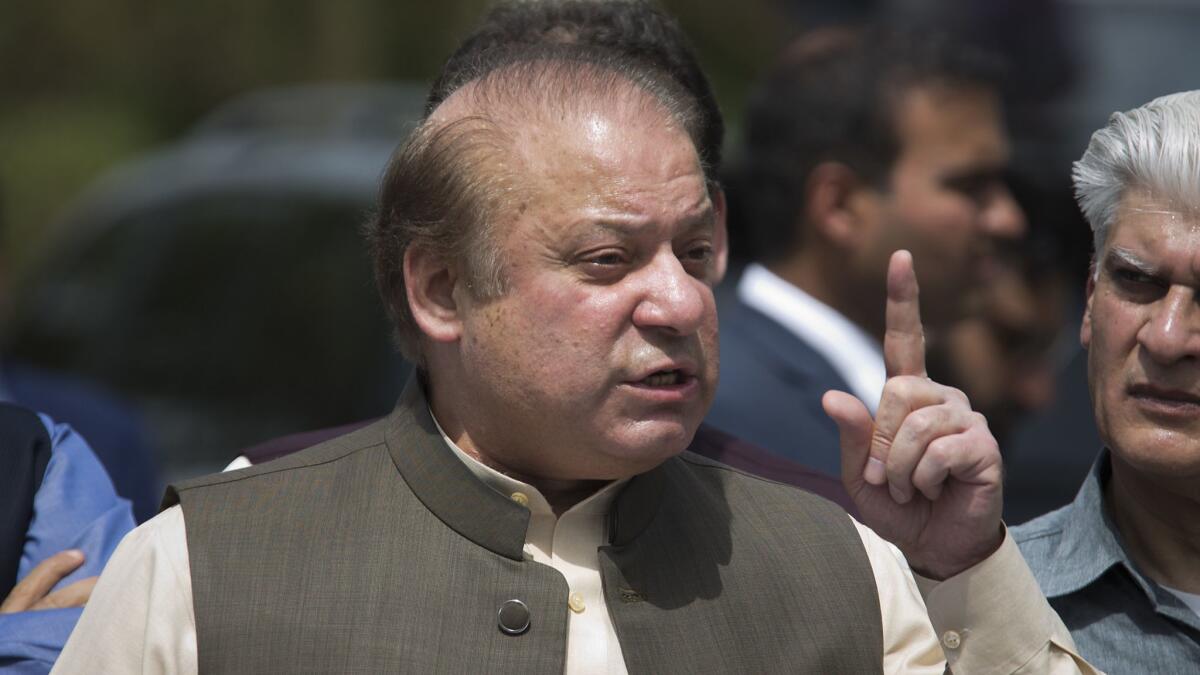Lying, cheating — and getting caught: A gallery of world leaders ousted in recent scandals

- Share via
Critics of Peruvian President Pedro Pablo Kuczynski reveled this past week in what must have seemed a rare and fitting political demise: his resignation amid allegations of vote buying, illegal campaign contributions and other corrupt practices.
The former World Bank economist and Wall Street banker had been on trial after revelations that a consulting firm he co-owned received an estimated $700,000 in contracts from a disgraced Brazilian construction firm while Kuczynski held several high political posts.
But Kuczynski’s case was not that rare. Charges of political misconduct, financial indiscretion and just plain dishonesty have ushered in the downfall of a surprising number of state leaders in recent years, and left others under investigation and battling to defend their reputation — even after leaving office.
In February, Israeli police recommended that Prime Minister Benjamin Netanyahu be indicted on suspicion of bribery, fraud, favor trading and breach of trust, casting doubt that his government could survive. Netanyahu, in office since 2009, has rejected the accusations.
This month, authorities detained former French President Nicolas Sarkozy, who left office in 2012, and questioned him about allegations that he received more than $60 million in illegal campaign funds from the late Libyan dictator Moammar Kadafi. The right-wing politician has denied the charges.
Also this month, a South Korean court issued an arrest warrant for former President Lee Myung-bak on charges of financial misconduct during and after his time in office. Prosecutors charge that Lee, who held office from 2008 to 2013, accepted about $10 million in bribes from business groups and his intelligence agency and established $33 million worth of slush funds.
In just the last two years, charges of committing or being associated with political misdeeds have led to the fall of at least five world leaders.
Here’s a look at the lineup:
Sigmundur David Gunnlaugsson — Iceland
Iceland’s prime minister, Sigmundur David Gunnlaugsson, resigned in April 2016 after revelations in the so-called Panama Papers, leaked documents detailing private financial information about thousands of offshore entities, appeared to show that Gunnlaugsson and his wife concealed millions of dollars’ worth of investments in an offshore company that served as a tax haven. The prime minister, who had described foreign creditors as “vultures,” has insisted he and his wife are innocent.

Dilma Rousseff — Brazil
In August 2016, Brazilian President Dilma Rousseff was impeached after the country’s Senate voted overwhelmingly to remove her from office. The country’s first female president and onetime guerrilla fighter-turned-economist was convicted of violating budgetary rules by shifting money around to cover short-term deficits. A year later, Rousseff and her predecessor, Luiz Inacio Lula da Silva, who served from 2003 to 2011, were charged with diverting funds from the state-run oil company Petrobras and from other public institutions to their Workers’ Party. Prosecutors estimated the loss to Petrobras was $9.33 billion.

Park Geun-hye — South Korea
Last March, Park Geun-hye, South Korea’s first female president, was ousted after the country’s constitutional court confirmed her impeachment, which had taken place three months earlier. Park’s downfall came amid allegations that she participated in a bribery scheme with tech giant Samsung Group that aimed to ensure the merger of two of the company’s affiliates. Months of massive street protests were staged to call for her impeachment, after four years in office. Although her attorneys charged that the case against Park was politically motivated, she repeatedly apologized. In February, prosecutors demanded a 30-year prison term and a $110-million fine for Park, who is charged with bribery, abuse of power and other crimes.

Nawaz Sharif — Pakistan
In July 2017, Pakistan’s Supreme Court ordered the dismissal of Prime Minister Nawaz Sharif after investigations revealed that his children were linked to offshore companies that he had not declared in financial disclosures. The findings were revealed in the Panama Papers. Also disqualified from serving in Parliament, Sharif resigned as prime minister — a position he had held for a third time. He and his family have denied any wrongdoing.
Jacob Zuma — South Africa
With his almost nine-year tenure beset by corruption scandals and charges of fiscal and administrative mismanagement, South African President Jacob Zuma bowed to pressure from his African National Congress party and resigned in February. This month, state prosecutors announced that charges against Zuma, stemming from a controversial bribery-tinged $2.5-billion arms deal from the late 1990s when he was deputy president, would be reinstated. Zuma has denied committing any transgressions.
Times staff writers Robyn Dixon in Johannesburg, South Africa, and special correspondents Matt Stiles in Seoul, Chris Kraul in Lima, Peru, and Christina Boyle in London contributed to this report.
To read this article in Spanish click here
For more on global development news, see our Global Development Watch page, and follow me @AMSimmons1 on Twitter
More to Read
Sign up for Essential California
The most important California stories and recommendations in your inbox every morning.
You may occasionally receive promotional content from the Los Angeles Times.











